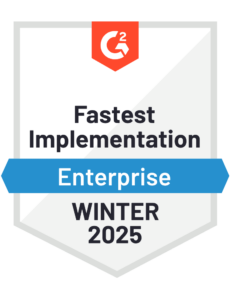6 Key Insights from Forrester Consulting’s 2020 Global Financial Close Report
Blog post
Share
Recently, Trintech, a leading global provider of integrated Record to Report software solutions for the Office of Finance, and Forrester Consulting released an extensive report investigating organizations’ use of ERP systems and financial software. The study interviewed 336 finance and IT leaders globally from a wide range of industries following the initial impacts of the global COVID-19 pandemic.
One of the biggest findings from the report was that 90% of the responding organizations struggled with challenges in their financial close process. However, the study not only drilled down into financial close problems and complexities, but also revealed critical insights about the evolving relationship between the Chief Financial Officer (CFO) and Chief Information Officer (CIO), the future of finance and recommendations for long-term organizational success.
The following six insights from the Forrester research only skim the surface of the study’s discoveries. To learn more, read the full report or view the recent on-demand webinar co-hosted by Trintech and Forrester Consulting about the report.
1. ERP landscape complexity is one of the biggest pain points of the financial close
The report found that, on average, each organization had 18 ERP instances from 9 different vendors. The resulting complexity when it comes to an organization’s IT environment significantly affects the integrity of all the data being housed and processed in this environment. Though the majority of the participants expressed high confidence in the accuracy of the data coming out of the ERP landscape, the study found that the lack of automation in this area caused the Office of Finance to spend too much time performing manual tasks related to data.
2. Accuracy and security are the top priorities for financial close processes
When asked which factor is the most important for their financial close processes, participants ranked accuracy and security the highest. However, 44% of participants also admitted that they experience data errors from manual tasks that hinder the accuracy of their reporting. The Office of Finance has historically relied on manual processes and tools to complete the financial close. Still, these approaches compared with the top concerns of finance and IT professionals have proved these methods ineffective and outdated.
3. CFOs spend too much time on ineffective tasks
The Office of the CFO has grown increasingly important in the last few years. In times of both organizational growth and uncertainty, internal and external stakeholders prize the guidance of the CFO just as much as the CEO. Additionally, the organization depends on the CFO and the Office of Finance to strategize with other C-Suite executives to support the organization’s initiatives and future direction. However, the Forrester research found that CFOs spend less than 13% of their time per workweek on matters concerning business strategy. In contrast, almost 40% of time is wasted on low-value tasks like cleaning or processing financial information or even searching for relevant financial information. To more effectively support the health and growth of their organizations, CFOs must reprioritize to spend more time on business strategy.
4. More Strategic CFO and CIO Collaboration is expected to produce faster, more accurate financial insights
One of the key findings of the report is that the CFO and CIO are well-suited partners to implement the next wave of technology into their organization. The priorities of the CFO are centered around ensuring the finance team delivers value, mitigates risk and maintains compliance, while the CIO enables the broader organization’s teams, including finance, through technology. The report suggested that the symbiotic duties of both C-Suite executives equip the two roles to share responsibilities. When asked what benefits these finance and IT professionals have experienced, or expect to experience, from more strategic collaboration, 33% said more accurate financial information, and 32% said faster insights into the financials. Increased control was also another benefit, which helps to address the aforementioned concern of security.
5. Artificial Intelligence (AI) is the next wave of financial management technology
80% of respondents said that AI will play a large or central role in their organization’s next wave of financial management technology. Moving beyond traditional close tools like spreadsheets and manual processes will solve many of the Office of Finance’s greatest financial close challenges such as data inaccuracy, lack of proper support technology, time waste, and undefined or ambiguous processes. Finance automation solutions that incorporate advanced technologies and AI like the Cadency® System of Accounting Intelligence include tools like Risk Intelligent Robotic Process Automation™ (RI-RPA) that significantly minimize risk by eliminating the need to perform manual tasks like data entry or other unnecessary activities. The study places a heavy emphasis on the need to boldly invest in finance technology and push the limits of AI in core finance processes in order to maintain market competitiveness.
6. Adopting advanced finance technologies benefits the entire organization
Though the report was geared towards the departments of finance and IT within the organization, the benefits these technologies deliver will impact the entire organization. The Office of Finance supports the health and growth of the organization, and the Office of IT equips the entire organization to more efficiently perform their duties. Implementing advanced finance technologies would free up time for both these departments to spend more time on value-adding activities to better serve the organization. Additionally, with the implementation of effective financial automation, the CFO could shift their priorities to focus on more strategic efforts to support the CEO’s vision for the future and better collaborate with the CIO— all while still being confident in the accuracy of the financial reporting and staying compliant.
Conclusion
These six key insights from the 2020 Forrester Report are only a fraction of what the entire study reveals about the challenges, priorities, goals and future of the financial close process and the Offices of Finance and IT.
To better understand the future of the financial close process and health-check your own Office of Finance and organization, watch the on-demand joint webinar between Trintech and Forrester Consulting.
Written by: Ashton Mathai







